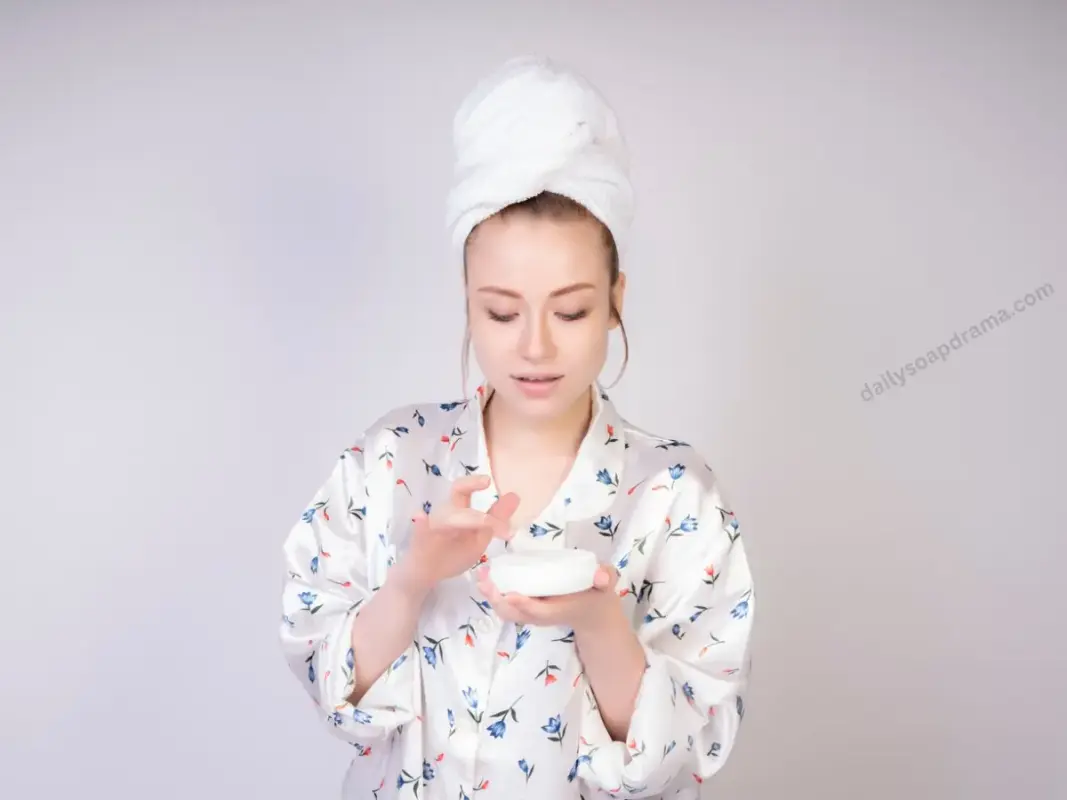Exfoliating your skin may make a big impact in skincare. Knowing when to exfoliate in skincare routine is difficult. Should you exfoliate morning or night? Is daily exfoliation okay? Not to worry! I've been there and will share my studies and experience. I offer simple recommendations to assist you get glowing skin whether you have sensitive, oily, or just want to know "how to exfoliate skin naturally! Happy reading!
What Is Exfoliation and Why Should You Do It
Let's explain exfoliation before we talk about whether to include it into a skincare regimen. Dead skin cells from the surface are exfoliated off. Exfoliating reveals smoother, younger skin by helping your skin heal itself.
Exfoliating has several benefits:
- Skin renewal: Dead skin cells are removed to repair the skin.
- Improved texture: A regular exfoliation may smooth skin.
- Unclogging pores: It prevents acne-causing blocked pores.
- Brighter skin: Exfoliation gives you a healthy shine!
Now that we know why exfoliation is vital for skin health, let's discuss when to exfoliate in skincare.
Recommended to read: Why Does My Makeup Look Oily After A Few Hours
When to Exfoliate in Skincare Routine

Frequently asked when to exfoliate in skincare routine can greatly impact results. Exfoliation at the incorrect time may limit product benefits or produce dryness. Let's break down a normal skincare regimen to determine where exfoliating fits best:
- Cleanse
- Exfoliate
- Tone if desired
- Apply serums or methods
- Moisturize
- Use sunscreen in the morning.
Since no two people have identical skin, some may change the sequence. Exfoliation after cleansing usually removes dirt and oil. Cleansed skin is exfoliated to focus on dead skin cells.Morning and nighttime exfoliation are possible. The option is primarily personal preference and skin type. Morning exfoliation might give you a fresher look during the day. People who take heavier therapies or require more time to recover may choose nighttime. The next part will assist determine the optimal exfoliation time depending on lifestyle and skin demands.
Key Tips for When to Exfoliate in Skincare Routine
Choosing the best time to exfoliate requires a bit of trial, but a few tips can keep things easy:
- You only need to do it once or twice a week at first.
- Cut down on how often you exfoliate if your skin feels tight or sensitive.
- To help new skin, you should always hydrate and use sunscreen to protect it.
- Scrub your face at night if you have more time. If you have more energy and attention in the morning, do it then.
Remember, consistent and gentle care is more important than rushing. Patience usually results in healthy, radiant skin.
When Should You Exfoliate Morning or Night
People often ask when should you exfoliate morning or night. Time is flexible, but skin type, product strength, and schedule often determine it.
morning exfoliation
People believe morning exfoliation starts the day bright and fresh. It removes sleep-related perspiration and grease. A brief morning exfoliation can help oily or mixed skin apply makeup or sunscreen evenly. A light scrub or chemical exfoliant is best.
Night Exfoliation
Sleep promotes skin regeneration. Thus, evening exfoliation aids natural regeneration. Since skin rests at night, stronger exfoliating procedures are easier to accept. After exfoliation, a thick moisturizer provides deeper hydration.
Depends on personal preference. Some find it easiest to stick to a bedtime regimen. Others like the morning rejuvenation. Not over-exfoliating is key in both circumstances. Overdoing it may irritate and damage the skin's barrier.
Exfoliate Before or After Cleanser
A lot of people ask, Should I exfoliate before or after cleanser? After washing, most skin care practices include exfoliation. To get the face ready for exfoliation, the wash gets rid of dirt, oil, and makeup. After surface filth is removed, exfoliants can better remove dead cells. The arrangement promotes gentleness and efficiency.Exfoliating is like smoothing a canvas. Cleansing first removes pollutants from the skin. Then exfoliation works better. Then apply toner, serum, moisturizer, and other normal processes.
Exfoliate Before or After Toners
Another question is exfoliate before or after toners. Toners are usually used after washing. Using a physical scrub or exfoliating product before toner is usually ideal. This behavior helps the toner relax and regulate the skin's pH for the next phases.Many current toners contain gentle exfoliants like salicylic acid. Exfoliation occurs during toner application. Exfoliators can be used after cleansing and before toning. Consistency simplifies the procedure. New approaches can assist determine what works.
Read also: Women's Beauty Tips And Tricks
Exfoliation Tips for Sensitive Skin
Certain people are cautious about exfoliation, especially those with sensitive skin. Gently removing dead cells can help keep sensitive skin clear and soft, but going slowly is crucial. Here are some exfoliation tips for sensitive skin:
- Pick a mild product: Look for ingredients that are soft and soothing, like oatmeal, rice bran powder, or chemical exfoliants with smaller amounts, like lactic acid.
- Patch test: Do a small test on your arm or another secret area before putting a new exfoliator on your face. Check back in 24 to 48 hours to see if the area gets red or itchy.
- Restrict time: Many people with sensitive skin simply need weekly exfoliation. Exfoliating too much might dry or redden skin.
- Follow with calm ingredients: Use lavender, aloe vera, or fatty acids products on your skin after scrubbing. These chemicals help calm skin and keep it safe.
- Avoid harsh scrubs: Stay away from things that have big, rough pieces that could tear or hurt skin.
By following these gentle steps, it’s possible to gain the benefits of exfoliation without causing unwanted irritation.
Exfoliation for Dry Skin
Dry skin often lacks both oil and moisture, leading to flakiness. This dryness can cause discomfort or a dull look. Regular exfoliation can help remove the dry, flaky layer, letting moisturizers absorb more effectively. Here’s how to approach exfoliation for dry skin:
- Choose a gentle exfoliant: Use gentle scrubs or chemical exfoliants. Hard products can irritate and hydrate skin.
- Focus on moisture: Apply a thick cream or lotion immediately after exfoliating to lock in moisture. Including hyaluronic acid or squalane can assist.
- Space out sessions: Exfoliating dry skin too much can cause redness. Improvements usually occur once or twice a week.
- Look for humectants: Glycerin, aloe, and honey moisturize skin. This can be in exfoliating products or follow-up treatments.
- Keep water lukewarm: Showers and face scrubbing should be mild since hot water strips vital oils from the skin.
Exfoliating and deeply hydrating dry skin can improve texture and smoothness.
When to Exfoliate in Skincare Routine for Oily
Oily skin commonly overproduces sebum, leading to shiny areas and frequent breakouts. Some individuals worry that exfoliating might make the oiliness worse, but the opposite can happen if done properly. For those wondering when to exfoliate in skincare routine for oily, the ideal schedule might involve more frequent exfoliation than other skin types. Here are some tips:
- Use gentle or moderate exfoliants, like products with salicylic acid, which can help clear pores.
- Exfoliate two or three times a week to manage oil levels, but monitor for irritation.
- Combine exfoliation with clay or charcoal products that further help remove excess oil.
- Choose nighttime exfoliation if wearing makeup is common during the day, to remove build-up effectively.
- Always end with a lightweight, non-comedogenic moisturizer to keep skin balanced.
The key is to find a consistent rhythm. With patience, oily skin can become more balanced and clearer over time.
When Should I Exfoliate My Body
Face exfoliation gets a lot of focus, but bodies also need attention. People often wonder, when should I exfoliate my body to keep skin smooth and free of bumps. Body exfoliation helps address issues like ingrown hairs, rough patches, and uneven texture. Unlike the delicate face, body skin usually tolerates scrubs better.
- Ideal Timing: Scrub in a warm shower or bath when pores are open.
- Pre-Shave Prep: Exfoliating before shaving reduces ingrown hairs and improves closeness.
- Moisturize: After showering, gently massage skin dry then apply lotion or moisturizer on top.
- Timing: Start weekly and adjust as needed based on skin response. Scrubbing too hard can hurt or tear.
For anyone trying body exfoliation for the first time, consider a gentle scrub with sugar or finely ground coffee. Over time, adding a reliable chemical exfoliant designed for the body can help tackle stubborn areas or texture concerns.
How to Exfoliate Skin Naturally

Some folks prefer natural skin care. Learn how to exfoliate skin naturally with common kitchen products. Simple natural exfoliants with nourishing components work well. Here are some simple suggestions:
- Sugar Scrub: Mix fine sugar with a little honey or coconut oil. Use gentle, circular strokes and rinse. Sugar granules eliminate dead skin, while honey moisturizes.
- Oatmeal Paste: Blend finely ground oats with water or yogurt. Oatmeal gently removes old cells without swelling.
- Coffee Grounds: Add used coffee grinds to warm water or oil. The gentle texture boosts circulation, leaving skin smooth and inspired.
- Baking Soda: A pinch of baking soda and water exfoliates gently. Some find baking soda too alkaline, so use carefully.
- Fruit Enzymes: Mash papaya or pineapple for a mask. Naturally occurring enzymes breakdown loose skin cells, revealing new skin.
It’s important to test these methods on a small patch first to watch for reactions. Natural ingredients can benefit skin in cost-effective ways, but gentle application is still key.
Read also: Preppy Skincare and Makeup Routine
Exfoliation During Skincare Routine & Proper Timing for Anti-Aging
Many people look to exfoliation as a tool in fighting signs of aging, such as fine lines and dullness. Exfoliation during skincare routine can boost cell turnover, encourage collagen production, and help active ingredients work better. At the same time, proper exfoliation timing for anti-aging is crucial.
- Moderation Matters: Overexfoliation weakens the skin's barrier, causing redness and sensitivity. Starting slowly, one to three times a week, is preferable.
- Chemical Exfoliants for Aging Skin: Glycolic acid penetrates deeper to rejuvenate skin. This can reduce creases over time.
- Combine with Antioxidants: After exfoliation, a vitamin C or green tea antioxidant serum protects freshly unveiled skin from environmental stresses.
- Nighttime Strategy: As skin rests after applying harsher anti-aging exfoliants at night, many feel it soothes better.
- Sun Protection: Freshly exfoliated skin is more sensitive. To protect fragile new cells and retain a young complexion, apply sunscreen daily.
When done carefully, exfoliation can be a powerful ally in preserving a vibrant, smooth look.
Myth and Fact
Exfoliation often comes with lots of claims and confusion. Below are a few common ideas, separated into myths and facts:
- Myth: Exfoliating daily guarantees better results.
Fact: Daily scrubs or acids can actually irritate skin, weakening its barrier. Most people thrive by exfoliating one to three times per week, depending on skin type. - Myth: Only expensive products work well.
Fact: Homemade scrubs and other affordable solutions work well when used correctly. Choose the proper formula for each skin type and use it regularly. - Myth: Exfoliation irritates delicate skin.
Fact: Gentle exfoliation prevents dead cell growth and improves soothing product absorption for sensitive skin. Avoid severe physical scrubbing and prefer moderate solutions. - Myth: Chemical exfoliants are too strong for everyday routines.
Fact: Chemical exfoliants come in varying strengths. Many mild formulations are designed for regular use. The important part is to follow instructions and observe how skin responds. - Myth: Exfoliation makes skin thinner.
Fact: Exfoliation promotes healthy cell turnover, boosting the skin. However, overexfoliation can break the moisture barrier and cause discomfort. Everything depends on balance.
Why Exfoliation Is Important for Skin Health
Many skincare experts discuss why exfoliation is important for skin health. Besides removing dead cells, this process:
- Allows treatments and moisturizers to penetrate deeper.
- Treats blackheads and breakouts by clearing pores.
- Helps even skin tone by minimizing dark patches.
- Makes skin seem healthier and brighter.
Keeping these points in mind shows the true value of exfoliation in preserving and improving overall skin wellness.
Exfoliation Benefits for Skin Renewal
Skin goes through a cycle of renewal, replacing old cells with fresh ones. Exfoliation benefits for skin renewal by speeding up and smoothing this process. Proper exfoliation can:
- Help fade uneven texture caused by dead cell buildup.
- Support collagen formation, which keeps skin firm.
- Clear dead cells that can make complexions look dull.
- Encourage better absorption of products like serums and essences.
- Give a polished finish that feels soft and looks youthful.
When these benefits are properly understood, it becomes easier to see why exfoliation is often considered a skincare must-have. By peeling away the old, the new skin can shine through with minimal effort.
Best Exfoliating Products for Your Routine
Choosing best exfoliating products for your routine depends on skin type, personal preference, and budget. With so many options, it helps to consider a few categories:
- Physical Scrubs
Products with fine grains (like sugar or rice powder) can be good for a quick polish. Make sure to use gentle pressure to avoid micro-tears. - Chemical Exfoliants (AHAs & BHAs)
AHAs, like glycolic or lactic acid, target the skin’s surface. BHAs, like salicylic acid, dive deeper into pores. Some cleansers and toners include these acids in low concentrations, making them simple to incorporate. - Peeling Pads & Masks
Pre-soaked pads or masks containing mild exfoliants offer a controlled dose. They can be a convenient choice for those who don’t have time to mix or measure. - Exfoliating Tools
Brushes, sponges, or electronic devices can help buff away flaky cells. They are best used carefully if the skin is delicate. - Natural Options
As mentioned before, sugar scrubs, oatmeal pastes, and coffee exfoliants can serve as eco-friendly, cost-effective alternatives.
It’s wise to read product labels, check for possible irritants, and pay attention to how skin reacts over time. People can also consider reputed brands known for high-quality ingredients.
Conclusion
Exfoliation is one of the most important steps you can take in your skincare routine to maintain healthy, glowing skin. Knowing when to exfoliate in skincare routine depends on your skin type, the exfoliant you're using, and your goals.
- Oily skin may benefit from exfoliating more often, while dry or sensitive skin should exfoliate gently and less frequently.
- Exfoliate at night for maximum skin benefits, especially when targeting anti-aging or skin renewal.
- Exfoliate before toners and after cleansing to get the best results from your skincare products.
With these tips and a bit of practice, you’ll be able to incorporate exfoliation into your skincare routine seamlessly. Remember, exfoliation isn’t about overdoing it—it’s about finding the right balance for your skin to look and feel its best!
FAQs' When To Exfoliate In Skincare Routine
Do I exfoliate before or after cleansing?
Pre-exfoliation cleansing allows chemical exfoliants to penetrate deep into the skin and prevents makeup or debris from pressing deeper, especially if mechanical exfoliation is used. The skin may lose moisture if you use both a mild cleanser and exfoliator to remove makeup and debris.
What are the 7 steps of skincare?
- Makeup Remover. Remove sebum, makeup, and daytime contaminants before cleaning your skin.
- Cleaner.
- Exfoliate.
- Toner.
- Serum.
- A moisturizer and overnight mask.
- Lip care.
What step is exfoliation in a skincare routine?
Step 3: Clay mask or exfoliator
Dead skin cells and pores are removed during exfoliation. Clay masks clear pores and absorb grease. To eliminate debris and help skin absorb other products, apply these masks at night.
Can I exfoliate every day?
Gentle exfoliation can be done everyday if your skin can handle it, but most skin types cannot.
What is the best time of day to exfoliate?
Usually optimal, exfoliating in the evening lets your skin improve over night.
Can I exfoliate if I have sensitive skin?
Indeed, but use mild exfoliants and exfoliate less often to prevent sensitivity.







